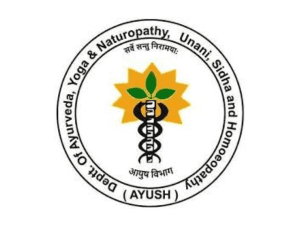Nutraceuticals
Nutraceuticals represent a fascinating intersection of nutrition and pharmaceuticals, offering a bridge between food and medicine. The term “nutraceutical” is a fusion of “nutrition” and “pharmaceutical,” reflecting its dual role in promoting health and preventing or managing diseases.

Defining Nutraceuticals
Nutraceuticals are bioactive compounds or substances derived from food sources that provide health benefits beyond basic nutrition. They are typically consumed in the form of dietary supplements or fortified foods and beverages. Nutraceuticals encompass a wide range of substances, including vitamins, minerals, antioxidants, probiotics, prebiotics, herbal extracts, and bioactive peptides.
The Significance of Nutraceuticals
The rise of nutraceuticals can be attributed to several key factors:
Preventive Health: Nutraceuticals are often associated with preventive health measures, as they provide a means to address nutritional deficiencies and support overall well-being.
Holistic Health: They align with the concept of holistic health, emphasizing the role of nutrition in preventing and managing chronic diseases.
Consumer Empowerment: Nutraceuticals empower individuals to take control of their health and make informed choices about their diet and supplement intake.
Complementary Medicine: Nutraceuticals complement traditional medicine by offering additional therapeutic benefits and supporting the body’s natural processes.
Types of Nutraceuticals
Vitamins and Minerals: Nutraceutical supplements often include vitamins (e.g., vitamin C, vitamin D) and minerals (e.g., calcium, iron) to address common deficiencies.
Antioxidants: These compounds, such as resveratrol and quercetin, protect cells from oxidative damage and are associated with a reduced risk of chronic diseases.
Probiotics and Prebiotics: Probiotics (beneficial bacteria) and prebiotics (fiber that feeds probiotics) support gut health, digestion, and the immune system.
Herbal Extracts: Extracts from plants like ginseng, turmeric, and echinacea are used for their potential therapeutic properties.
Omega-3 Fatty Acids: These healthy fats found in fish oil and flaxseed have been linked to heart and brain health.
Applications of Nutraceuticals
Dietary Supplements: Nutraceuticals are commonly found in the form of dietary supplements, including vitamins, minerals, herbal extracts, and more.
Functional Foods: Certain foods and beverages are fortified with nutraceutical ingredients to provide health benefits, such as fortified cereals or probiotic yogurt.
Cosmeceuticals: Nutraceutical compounds are used in cosmetics and skincare products for their potential skin-enhancing properties.
Pharmaceuticals: Some nutraceutical ingredients have been studied and integrated into pharmaceutical drugs for therapeutic purposes.
Challenges and Considerations
While nutraceuticals offer numerous benefits, there are challenges to consider:
Regulation: The regulation of nutraceuticals varies by country, leading to concerns about quality and safety.
Research and Efficacy: Not all nutraceuticals have robust scientific evidence supporting their health claims, so it’s essential to choose products wisely.
Interaction with Medications: Some nutraceuticals can interact with prescription medications, so consultation with a healthcare provider is advised.
Quality Certificates














